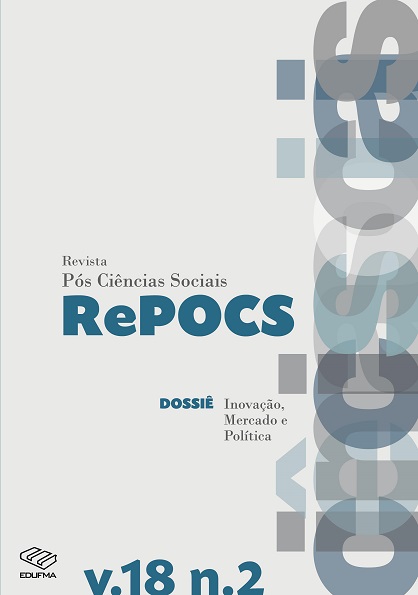GERMANY’S INNOVATION MANUFACTURING: A PATH TO KNOWLEDGE-INTENSIVE ECONOMY<br/><br/>A INOVAÇÃO EM MANUFATURA NA ALEMANHA: UM CAMINHO PARA UMA ECONOMIA INTENSIVA EM CONHECIMENTO
DOI:
https://doi.org/10.18764/2236-9473.v18n2p333-354Palavras-chave:
Mittelstand, Industrie 4.0, Knowledge-intensive, Manufacturing innovation | Mittelstand, Intensivo em conhecimento, Inovação na manufaturaResumo
Abstract
German manufacturing firms’ industrial system is widely known as Diversified Quality Production, a product strategy which applies the techniques of volume production to high quality product lines (STREECK, 1997). It is a differentiation instead of a cost-driven competitive strategy. The DQP system is supported by a wide and dense mesh of institutions promoting ‘strategic’ interaction between firms and other actors. However, the transition to Industrie 4.0 demands knowledge intensive ICT which can hamper the innovative potential from Mittelstand. Employment in high and medium-tech manufacturing, ICT share in the GDP and hightech exports are virtually stagnated over the last decade and the industrial policy should heed these early signals. The conundrum faced by Germany is to what extent changes in manufacturing will also require changing the institutions which supported its successful innovation manufacturing model centred on Diversified Quality Production.
Resumo
O sucesso das empresas médias alemãs é amplamente conhecido como Produção com Qualidade Diversificada (PQD), uma estratégia de produto que aplica as técnicas de produção em escala às linhas de produtos de alta qualidade (STREECK, 1997). A ênfase é na diferenciação ao invés de uma estratégia competitiva baseada em custos. A PQD é apoiada por rede de instituições que promovem a interação “estratégica” entre empresas e outros atores. No entanto, a transição para a Indústria 4.0 exige um conhecimento intensivo de TIC que pode dificultar o potencial inovador da Mittelstand. O emprego na manufatura de alta e média tecnologia, a participação das TIC no PIB e as exportações de alta tecnologia estão estagnadas na última década e a política industrial deve estar atenta a estes sinais. Até que ponto as mudanças na manufatura na Alemanha também exigirão mudanças nas instituições que apoiaram seu modelo inovador bem sucedido da PQD.
Downloads
Downloads
Publicado
Como Citar
Edição
Seção
Licença
Direitos autorais Revista Pós Ciências Sociais
Este obra está licenciado com uma Licença Creative Commons Atribuição 4.0 Internacional.


